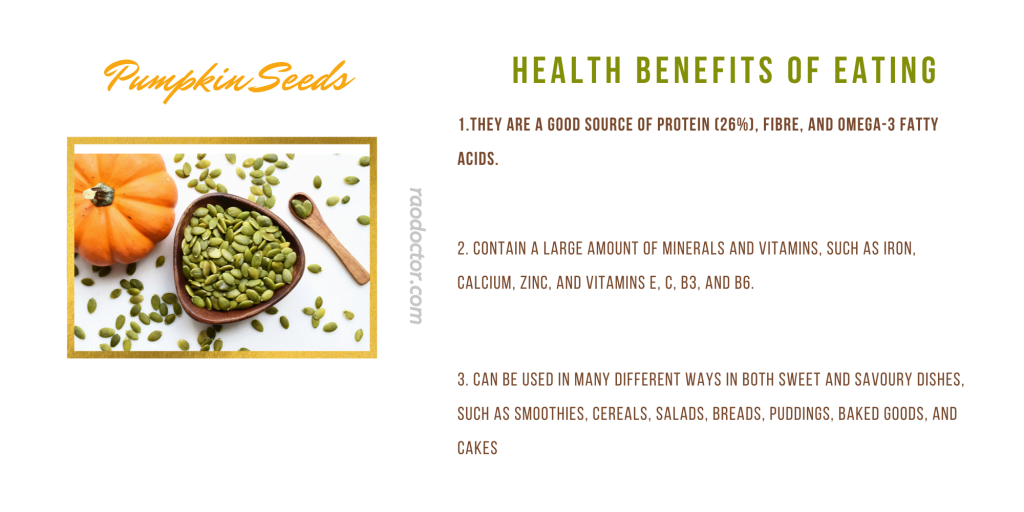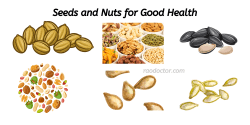
Image Source: FreeImages
10 Best Seeds and Nuts Varieties to Keep You Healthy- Part 1

Introduction-
We all love to eat and the taste buds on our tongues respond to various flavors in different ways. Eating prudently is a smart way to help you remain healthy and increase your longevity.
Recently, I published an article on 8 vegetables that can improve various aspects of our health. In line with this series, we now explore some seeds and nuts to add to our diet, albeit sparingly-say, at evening tea- to make our diet more nutritious and healthier than before.
About Seeds and Nuts
Do you love nuts? Do you also love seeds? Then this article is for you! Both foods offer wonderful benefits, but there are many different types to choose from. Nuts and seeds are an excellent source of vitamins, minerals, and healthy fats. However, the specific nutrition profile may vary, depending on the type that you select. Keeping that in mind, we’ve compiled a list of the top ten best seed and nut varieties that will keep you healthy.
Introductory video-
Before we begin, please have a look at this small video I have created just for you- you can then read all about it in detail later in this article.
As this article is quite exhaustive, I have decided to split it into two parts. In the first part we will discuss 5 of them and the rest 5 in part two. So, let’s begin with 5 types of seeds that you should consider adding to your daily diet-
Sunflower seeds-

Sunflower seeds are incredibly nutritious, with one ounce containing 10% of your recommended daily intake of protein, a whopping 21% of your daily recommended intake of fiber, and small amounts of many other vitamins and minerals. They’re also low in calories and fat, with just one ounce containing 190 calories, 14 grams of fat, and 5 grams of protein. They’re also gluten-free and soy-free, making them a great choice for people with food allergies.
Chia Seeds

Chia seeds are tiny black seeds that are native to Central America. They can be eaten either fresh or dried, and they have a mild and nutty flavor. Chia seeds are a great source of protein (15%), fiber, and omega-3 fatty acids.
They also contain a large amount of minerals and vitamins, such as iron, calcium, zinc, and vitamins E, C, B3, and B6.
Chia seeds can be used in many different ways in both sweet and savory dishes, such as smoothies, cereals, casseroles, crackers, breads, puddings, baked goods, and salads.
Health Benefits of Chia Seeds: –
Chia seeds contain many ingredients that are useful to maintain our health. Have look-
- They are a good source of protein – 15% of your daily protein intake can come from chia seeds.
- They contain high amounts of fiber – This helps to keep you full for longer and can help lower blood cholesterol.
- They are a good source of omega-3 fatty acids – This can help lower blood pressure and reduce the risk of heart disease.
- They are a great source of minerals and vitamins – This can help to support your general health and keep your body in good condition.
- They are good for your digestive health – They are high in fiber, which can help regulate your bowel movements.
- They can help you lose weight – Chia seeds are very low in calories and can help you lose weight.
Flaxseeds
Flaxseeds are the seeds of the flax plant, which is a plant species native to Northwest Asia, Northern Africa, and Southern Europe. They are small brown or grey seeds that can be eaten both fresh and dried
. Flaxseeds are a good source of protein (29%), fiber, and omega-3 fatty acids. They also contain a large amount of minerals and vitamins, such as iron, calcium, and vitamin B3.
Flaxseeds can be used in many different ways in both sweet and savory dishes, such as smoothies, cereals, salads, breads, puddings, baked goods, and cakes. You can also grind your flaxseeds and use them as an egg substitute in baked goods.

Health Benefits of Flaxseeds: –
- They are a good source of protein – 29% of your daily protein intake can come from flaxseeds. –
- They contain high amounts of fiber – This helps to keep you full for longer and can help lower blood cholesterol. –
- They are a good source of omega-3 fatty acids – This can help lower blood pressure and reduce the risk of heart disease. – T
- hey are a great source of minerals and vitamins – This can help to support your general health and keep your body in good condition. –
- They are good for your digestive health – They are high in fiber, which can help regulate your bowel movements. –
- They can help you lose weight – Flaxseeds are very low in calories and can help you lose weight.
Hemp seeds

Hemp seeds are the seeds of hemp plants and are the most nutritionally dense seeds in the world. They are small dark green seeds that can be eaten both fresh and dried. Hemp seeds are a great source of protein (33%), fiber, and omega-3 fatty acids. They also contain a large amount of minerals and vitamins, such as iron, calcium, zinc, and vitamins E, C, B3, and B6.
Hemp seeds can be used in many different ways in both sweet and savory dishes, such as smoothies, cereals, salads, puddings, baked goods, and cakes.
Health Benefits of Hemp Seeds: –
- They are a good source of protein – 33% of your daily protein intake can come from hemp seeds. –
- They contain high amounts of fibre – This helps to keep you full for longer and can help lower blood cholesterol. –
- They are a good source of omega-3 fatty acids – This can help lower blood pressure and reduce the risk of heart disease. –
- They are a great source of minerals and vitamins – This can help to support your general health and keep your body in good condition. –
- They are good for your digestive health – They are high in fibre, which can help regulate your bowel movements. –
- They can help you lose weight – Hemp seeds are very low in calories and can help you lose weight.
Pumpkin seeds

Pumpkin seeds are the seeds of a squash plant and are popular in both sweet and savoury dishes. They are a good source of protein (26%), fibre, and omega-3 fatty acids.
They also contain a large amount of minerals and vitamins, such as iron, calcium, zinc, and vitamins E, C, B3, and B6. Pumpkin seeds can be used in many different ways in both sweet and savoury dishes, such as smoothies, cereals, salads, breads, puddings, baked goods, and cakes.
Health Benefits of Pumpkin seeds: –
- They are a excellent source of protein – 26% of your daily protein intake can come from pumpkin seeds.
- They contain considerable amounts of fiber – This helps to keep you full for longer and can help lower blood cholesterol.
- They are a useful source of omega-3 fatty acids – This can help lower blood pressure and reduce the risk of heart disease.
- They are a reliable source of minerals and vitamins – This can help to support your general health and keep your body in good condition.
- They are good for your digestive health – They are high in fiber, which can help regulate your bowel movements.
- They can help you lose weight – Pumpkin seeds are incredibly low in calories and can help you lose weight.
All these seeds are available on online shopping sites such as Amazon. Here are the country-wise links if you want to purchase these seeds-
Amazon.com-
Disclosure
This article contains affiliate links to Amazon Shopping and Canva Pro. Using these links and making a purchase will help get the author a small commission without any extra cost to the purchaser as well as availing discounted products on purchase.
Could you do me a small favor?
I would be incredibly happy if you could leave a few words or suggestions about this article in the suggestions box below-

